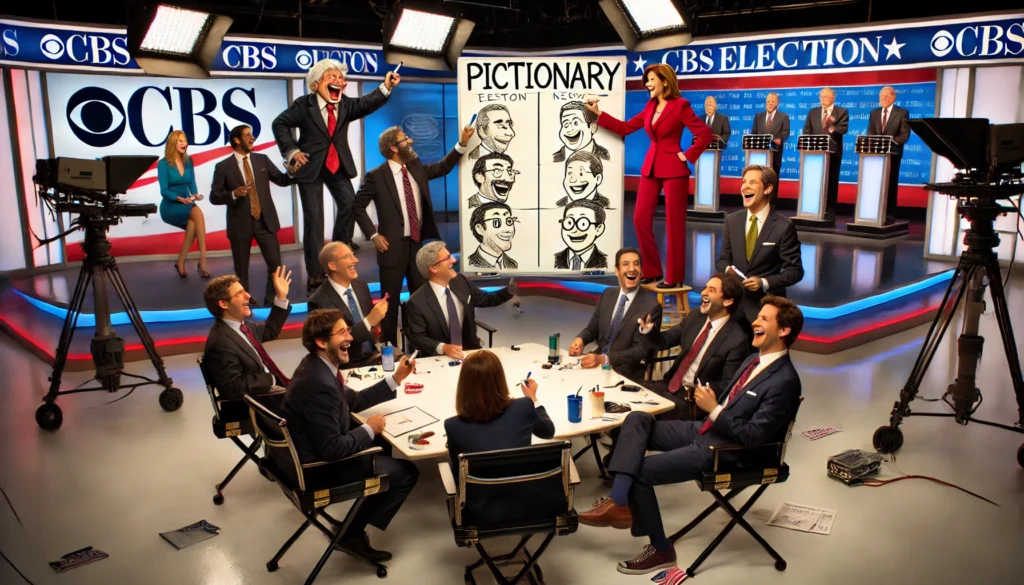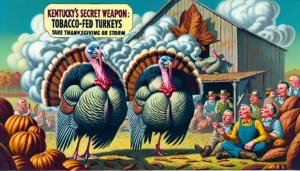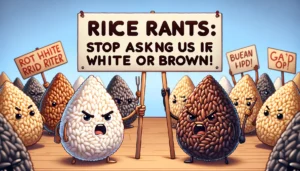
CBS NEWS A humorous scene of CBS election journalists gathered in a studio setting dressed in formal suits but watching and engaged in a lively game of Pictio.webp.webp
Why CBS Aired Pictionary Instead of Election News
A Look at the Most Bizarre Broadcast Decision in History
Wichita Falls, TX — In a twist so surreal that viewers double-checked their remotes, CBS cut away from its live election coverage last night and pivoted to a primetime airing of Pictionary. The timing was… let’s say, unique. As states turned red and blue, as projections blurred and tensions ran high, CBS opted to go silent on the biggest election story of the year, switching to a low-stakes guessing game better suited to rainy family weekends.
By the time most viewers caught on, a local weatherman from Nebraska was struggling to draw what looked like an abstract barn. The scene was confusing, to say the least. So, what drove CBS to hit the “game-show button” rather than stick to its planned marathon of election-night punditry? Why did the network trade poll numbers for doodles and vote counts for visual charades? Here are 15 satirical speculations.
An Attempt to Distract the Masses
One school of thought is that CBS pulled a classic sleight of hand: distract, and distract fast. Rumors suggest the producers feared an upset so large it could destabilize the network’s viewership. To calm the masses, CBS executives theorized, why not swap vote totals with a drawing of a dinosaur that somehow also looked like a toaster? And hey, if the public is busy guessing whether a sketch is a cat or an eggplant, they might just forget about the tension in the race. Call it a strategic exit from the existential dread that an electoral upset can bring.
As a CBS spokesperson stated, “When you can’t soothe the masses with the truth, you soothe them with a marker and some fun guessing games.”
A Modern-Day Swan Lake Situation
In moments of political turmoil, there are those who choose to bow out rather than face the music. The precedent for this dates back to the USSR, where, whenever a coup or shakeup occurred, state television would air the ballet Swan Lake—a subtle way of saying, “We’re going to skip this and leave you with something beautiful and irrelevant instead.”
Apparently, CBS wanted to pay homage to this, although ballet didn’t quite fit their demographic. Pictionary, however, seemed just right—playful, colorful, and so low-stakes that even the hardest-hitting political junkies wouldn’t find anything remotely illuminating. As one CBS executive explained, “We figured Pictionary was the modern equivalent of Swan Lake, but with more markers and fewer pirouettes.”
Saying the ‘T’ Word Was Simply Too Much
If rumors are to be believed, CBS’s political analysts physically recoiled at the thought of saying “Trump” live on air, which had suddenly become inevitable. So rather than face the possibility of uttering the “T” word, they chose a form of escapism. A drawing board, an overly excited game-show host, and a few awkward celebrity contestants seemed like the perfect way to dodge reality.
Instead of discussing key swing states, the audience was treated to an exhilarating debate over whether a hastily drawn blob was, in fact, a taco or a couch. In short, CBS decided to keep things cryptic and avoid acknowledging the election result that might have unsettled certain anchors’ stomachs.
Concession Speech? They’re Opting Out
Another plausible reason? CBS didn’t want to air the opposition’s victory speech or the inevitable concession from the losing side. Rather than face those uncomfortable moments live, they thought, “Why not Pictionary?”
So as millions expected political commentary, CBS gave them “Is that a teacup?” and “Oh, it’s a sled!”—a much safer conversation, and one that required no careful phrasing. By diverting to harmless sketches and frantic guesses, they effectively sidestepped the gracious exit expected from major networks on election night.
Who Needs Accurate Projections When You’ve Got Guessing Games?
After weeks of exhaustive polling predictions that proved less than reliable, CBS may have finally thrown up their hands. They’d invested so much in predictions, only to realize their guesses were as accurate as a Pictionary drawing. Why not lean in fully? After all, Pictionary is, at its core, a guessing game. And, really, what’s the difference between “Will Florida swing red?” and “Is that a horse or a camel?” Either way, it’s a shot in the dark.
Ego Preservation: Keeping Analysts’ Pride Intact
Another theory is that CBS’s top analysts simply couldn’t bear to admit they’d been outwitted by an electoral twist they didn’t see coming. Instead of staring down their defeat, they quickly switched to a game show that didn’t demand expertise, eloquence, or humility. In Pictionary, there’s no “wrong” prediction—only bad guesses. It was the perfect ego-preserving solution for analysts exhausted by months of pre-election posturing.
Avoiding the Awkward Post-Loss Q&A
Facing the inevitable post-election Q&A, CBS strategists figured they could at least avoid the tough questions if they weren’t actually discussing politics. With Pictionary running, there was no need to answer probing questions about what went wrong, where their predictions faltered, or how their guests felt about the loss. Instead, they could ask the audience, “Is that a duck or a canoe?” and revel in the simplicity of non-controversial guessing games.
Spinning Pictionary as a ‘Democratic Process’
The network reportedly tried to pass off their programming change as a lesson in democracy. “Look,” a CBS producer said, “everyone gets a voice in Pictionary. There are no winners and losers—just interpretations.” By putting a spin on the show as a “democratic exercise in visual freedom,” CBS avoided any awkward political statements and let viewers lose themselves in the simplicity of a game board.
Because Words Can Be Slippery—And So Can Truths
CBS reportedly wanted to avoid another moment of “accidental truth.” They feared that one of their anchors might blurt out something unexpected, like “Maybe the other side had a point” or “Well, we didn’t see this coming.” To avoid such slips, they opted for a wordless game where the truth was as vague as the drawings on the board.
Filling Their Ratings Quota with Something Non-Lethal
Sources suggest CBS was facing a critical ratings quota, and they figured a low-stakes game would be less likely to rile viewers. After all, nobody storms out of a Pictionary game yelling, “That was rigged!” CBS could safely attract viewers with a show unlikely to cause division, anger, or even strong opinions.
They Couldn’t Handle Admitting Defeat
Since facing defeat isn’t typically in the CBS playbook, they sought a game that would keep them out of the concession conversation entirely. “If we’re going to lose, we’re not losing in primetime,” a producer said. Pictionary, with its low bar and high entertainment value, was a way to avoid any admission of electoral defeat while keeping a lighthearted, family-friendly tone.
Expecting Viewers to Switch Channels in Protest
CBS figured that viewers would quickly grow frustrated with Pictionary and switch to another network, saving them from having to do the tough job of actually breaking down the election results. Some analysts even suggested they did it on purpose, as an act of “quiet rebellion” against an outcome they weren’t thrilled about. Let the other networks handle it, CBS decided, while they sketched out a squirrel in peace.
Sticking to “Interpretive Coverage”
CBS execs described their programming decision as “interpretive election coverage,” leaning into the ambiguity of Pictionary to represent the uncertainty they felt. “What’s the difference between a poorly drawn elephant and an exit poll?” they joked. “Both are open to interpretation.”
Using a Quiet Form of Protest
Some say CBS’s switch to Pictionary was an act of silent protest, a subtle message to its viewers. Why offer a play-by-play when you could opt out entirely, they reasoned. After all, nothing says “disapproval” like silence—well, silence and a poorly drawn pineapple.
Avoiding Self-Reflection by All Means
At the end of the day, CBS’s decision might’ve been a clever way to dodge any self-examination. By going with a game show, they skipped over any need to ask hard questions, analyze their performance, or re-evaluate their predictions. In a world of ambiguity, they opted to avoid the mirror entirely and let viewers enjoy some good, old-fashioned guessing games.
Final Takeaway
CBS’s move to air Pictionary instead of election coverage may go down in history as one of the most baffling—and yet strangely plausible—broadcast decisions of all time. As the nation sat down to follow the election drama, CBS viewers found themselves watching a guessing game with nothing but a whiteboard and a marker. Whether it was a distraction, an homage to Soviet Swan Lake, or just an act of quiet resistance, CBS’s decision will be remembered as the night politics gave way to pure, surreal escapism.
Disclaimer: This story is purely satirical, a joint collaboration between a wandering cowboy and an irreverent farmer with a love of political theater and Pictionary alike. Any resemblance to real-life events is a mere coincidence, and we assure you that no broadcasters were harmed in the making of this parody.

Originally Published at FarmerCowboy.com
2024-11-06 08:43:08
Karl Hoffman is a distinguished agriculturalist with over four decades of experience in sustainable farming practices. He holds a Ph.D. in Agronomy from Cornell University and has made significant contributions as a professor at Iowa State University. Hoffman’s groundbreaking research on integrated pest management and soil health has revolutionized modern agriculture. As a respected farm journalist, his column “Field Notes with Karl Hoffman” and his blog “The Modern Farmer” provide insightful, practical advice to a global audience. Hoffman’s work with the USDA and the United Nations FAO has enhanced food security worldwide. His awards include the USDA’s Distinguished Service Award and the World Food Prize, reflecting his profound impact on agriculture and sustainability.





Farm Radio is like a warm cup of coffee for my soul every morning. Keep those tunes coming!
Don’t let internet negativity get in the way of a good country song! Farm.FM is always a breath of fresh air when the trolls get loud.
Bohiney News knows how to keep it real… and funny! Don’t miss out on the satirical content that everyone is talking about. Visit bohiney.com today!